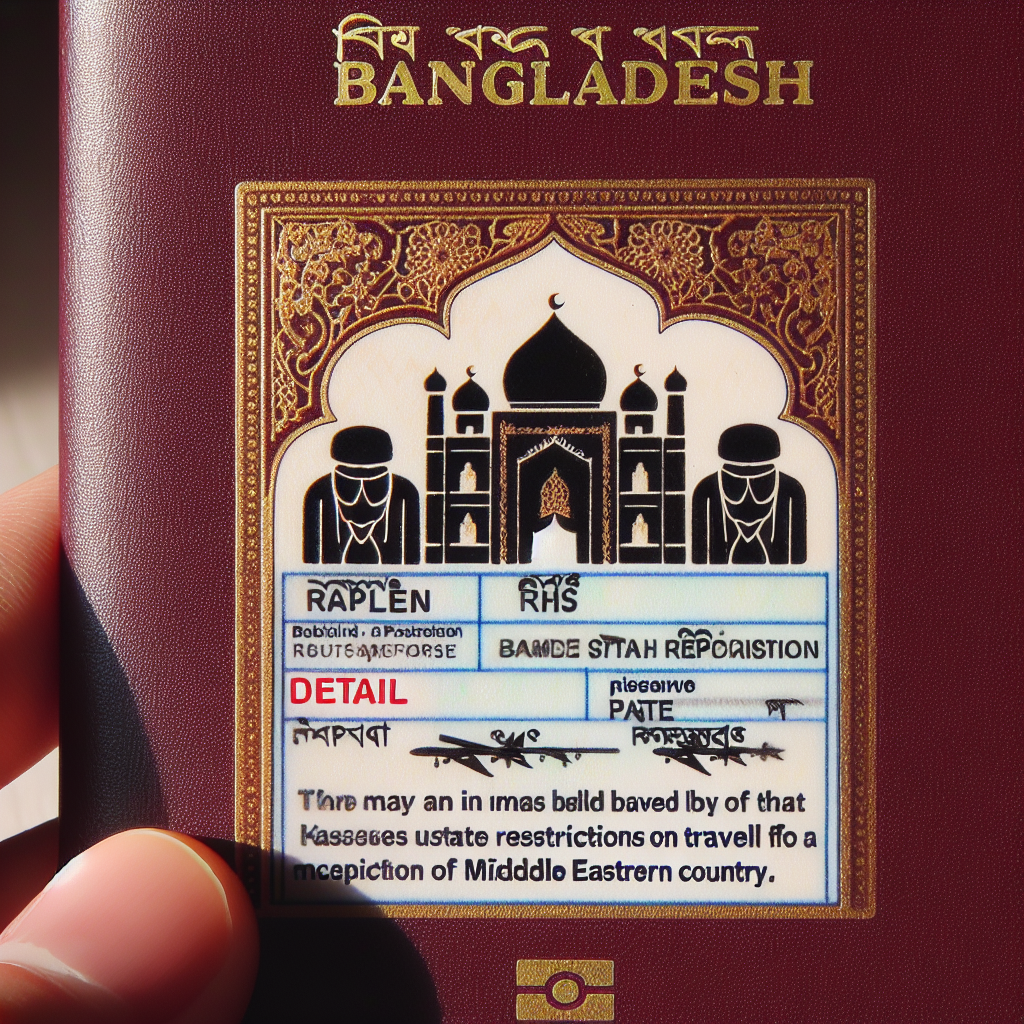Bangladesh’s Passport Clause: Restricting Travel to Israel
Bangladesh’s Passport Clause: Restricting Travel to Israel
Overview
Bangladesh has maintained a longstanding policy of restricting its citizens from traveling to Israel. This policy is explicitly stated in the country’s passport, which includes a clause that prohibits travel to the Middle Eastern nation. The restriction is rooted in Bangladesh’s political stance and diplomatic relations.
Key Points
- Passport Clause: Bangladeshi passports contain a specific clause that states, “This passport is valid for all countries of the world except Israel.”
- Diplomatic Relations: Bangladesh does not have formal diplomatic relations with Israel, aligning itself with the broader stance of many Muslim-majority countries.
- Historical Context: The travel restriction is part of Bangladesh’s support for the Palestinian cause and its opposition to Israeli policies in the region.
- Legal Implications: Violating the travel restriction can lead to legal consequences for Bangladeshi citizens, including potential penalties upon return.
Public and International Reactions
The travel restriction has sparked discussions both domestically and internationally. Some advocate for lifting the ban to promote greater freedom of movement and potential diplomatic engagement, while others support maintaining the restriction as a symbol of solidarity with Palestine.
Conclusion
Bangladesh’s passport clause restricting travel to Israel reflects the country’s diplomatic stance and historical support for Palestine. While the policy remains a point of contention, it underscores the complex interplay between national policy and international relations. The clause serves as a reminder of the broader geopolitical dynamics influencing travel and diplomacy in the region.

































